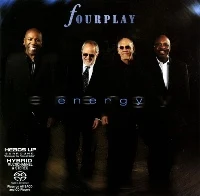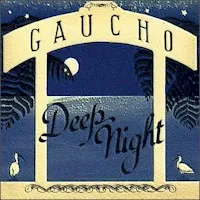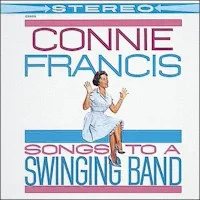Year: 2008
File: MP3@320K/s
Time: 50:25
Size: 115,6 MB
Art: Front
(5:52) 1. Fortune Teller
(5:25) 2. The Whistle
(4:17) 3. Ultralight
(4:57) 4. Cape Town
(5:07) 5. The Yes Club
(3:09) 6. Prelude For Lovers
(6:35) 7. Look Both Ways
(5:21) 8. Argentina
(4:54) 9. Comfort Zone
(4:45) 10. Sebastian
Fourplay is as much a conundrum as a contrivance. Their punning name suggests sexy jazz and both levels are sometimes achieved but if this collective's aim of producing what is, after all, supposed to be "pretty music" meets its goal, it may sell millions but it rarely rises above agreeable (for those paying attention) or merely listenable (for those doing other things). Energy, the foursome's eleventh release and seventh with Larry Carlton in place of original guitarist Lee Ritenour, continues this foray but with slightly better than average results. While no Fourplay album has ever produced any definitive musical statement, the eponymous first album (Warner Bros., 1991) contains many of what remains today to be the band's best and best-known music ("Bali Run," "101 Eastbound," "Moonjogger").
It also set the group's "fourmula" "Bali Run" rewrites, a strikingly anonymous ballad featuring a high-profile or label-mate singer and low-key riff-based tunes from each of the group's four leaders. Only occasionally has the group appeared to go for something greater. Several examples include "Chant" from Between The Sheets (Warner Bros., 1993), Snowbound (Warner Bros., 1999), a charming and unusual holiday collection, and the quite fine Heartfelt (Bluebird, 2002).
Here, they may have actually come up with the "energy" to make something that matters slightly more than usual. As always, keyboardist Bob James and guitarist Larry Carlton are the predominant soloists although bassist Nathan East's occasional warm vocalizations give this band its distinct personality and while James often contributes the stronger tunes, Carlton steps up here with two mildly funky gems, "Ultralight," offering a brief and welcome respite by Bob James on Fender Rhodes, and "Comfort Zone," which seems to have jumped right out of the Crusaders catalog (Carlton was one of the Crusaders in the 1970s). But, like so much in the Fourplay band book, even these lack the sort of drama or sustained interest that make a memorable tune compelling.
Bob James contributes three interesting compositions, most notably the enchanting "Sebastian," which is based on a beautiful Bach piano piece and nicely recalls his synth-driven take on Beethoven's Ninth Symphony, "Ludwig," from 1983. James mines more of his past on "The Yes Club," a jaunty sprite that echoes his Lucky Seven (Columbia, 1979) fusion days and "Look Both Ways," which initially suggests One On One (CBS, 1979), his 1979 foray with Earl Klugh, then moves to suggest a few pieces on the pair's 1992 collaboration, Cool (Warner Bros., 1992). Indeed, "Look Both Ways" offers one startling minute that is the jazziest and most exciting this foursome has ever gotten. This is the way to look.
With four players of the caliber of Bob James, Larry Carlton, Nathan East, and Harvey Mason, talented and experienced beyond imagination and certainly capable of choosing their own direction, it's easy to hope for more than what Energy provides. But now, well past the group's 15-year mark, it's unreasonable to expect any substantial change. Despite this, Energy lives up to its claim, invigorating Fourplay to deliver one of its more interesting and enjoyable releases.~Douglas Paynehttps://www.allaboutjazz.com/energy-fourplay-heads-up-international-review-by-douglas-payne
Personnel: Bob James: keyboards; Nathan East: bass, vocals (4, 10); Larry Carlton: guitar; Harvey Mason: drums; Sara East: background vocal (4); Noah East: background vocal (4); Elijah East: background vocal (4); Marcel East: programming (4), percussion (4), keyboards (4), guitar (4); Esperanza Spalding: vocals (6).
It also set the group's "fourmula" "Bali Run" rewrites, a strikingly anonymous ballad featuring a high-profile or label-mate singer and low-key riff-based tunes from each of the group's four leaders. Only occasionally has the group appeared to go for something greater. Several examples include "Chant" from Between The Sheets (Warner Bros., 1993), Snowbound (Warner Bros., 1999), a charming and unusual holiday collection, and the quite fine Heartfelt (Bluebird, 2002).
Here, they may have actually come up with the "energy" to make something that matters slightly more than usual. As always, keyboardist Bob James and guitarist Larry Carlton are the predominant soloists although bassist Nathan East's occasional warm vocalizations give this band its distinct personality and while James often contributes the stronger tunes, Carlton steps up here with two mildly funky gems, "Ultralight," offering a brief and welcome respite by Bob James on Fender Rhodes, and "Comfort Zone," which seems to have jumped right out of the Crusaders catalog (Carlton was one of the Crusaders in the 1970s). But, like so much in the Fourplay band book, even these lack the sort of drama or sustained interest that make a memorable tune compelling.
Bob James contributes three interesting compositions, most notably the enchanting "Sebastian," which is based on a beautiful Bach piano piece and nicely recalls his synth-driven take on Beethoven's Ninth Symphony, "Ludwig," from 1983. James mines more of his past on "The Yes Club," a jaunty sprite that echoes his Lucky Seven (Columbia, 1979) fusion days and "Look Both Ways," which initially suggests One On One (CBS, 1979), his 1979 foray with Earl Klugh, then moves to suggest a few pieces on the pair's 1992 collaboration, Cool (Warner Bros., 1992). Indeed, "Look Both Ways" offers one startling minute that is the jazziest and most exciting this foursome has ever gotten. This is the way to look.
With four players of the caliber of Bob James, Larry Carlton, Nathan East, and Harvey Mason, talented and experienced beyond imagination and certainly capable of choosing their own direction, it's easy to hope for more than what Energy provides. But now, well past the group's 15-year mark, it's unreasonable to expect any substantial change. Despite this, Energy lives up to its claim, invigorating Fourplay to deliver one of its more interesting and enjoyable releases.~Douglas Paynehttps://www.allaboutjazz.com/energy-fourplay-heads-up-international-review-by-douglas-payne
Personnel: Bob James: keyboards; Nathan East: bass, vocals (4, 10); Larry Carlton: guitar; Harvey Mason: drums; Sara East: background vocal (4); Noah East: background vocal (4); Elijah East: background vocal (4); Marcel East: programming (4), percussion (4), keyboards (4), guitar (4); Esperanza Spalding: vocals (6).
Energy




















